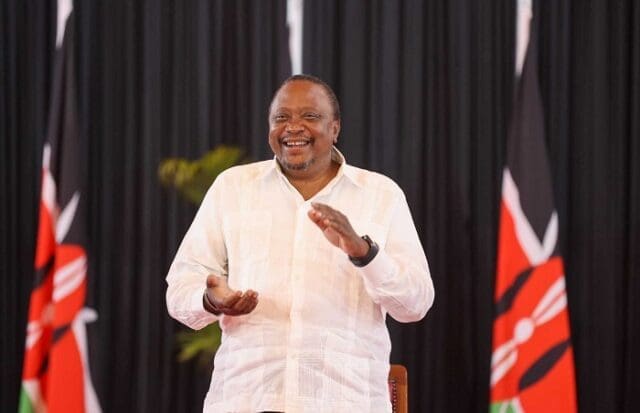
Uhuru Spoke To Obama Ahead Of Hague Trip PRESIDENT Uhuru Kenyatta consulted US President Barack Obama and regional leaders before he made his historic decision to hand over power to his Deputy William Ruto while he attends his Status Conference at The Hague tomorrow.
The Head of State also had long conversations with Presidents Yoweri Museveni of Uganda, Paul Kagame of Rwanda, Jakaya Kikwete of Tanzania, Pierre Nkurunziza of Burundi and South Africa’s Jacob Zuma.
“The consultations were far and wide,” a source familiar with the dialogues confirmed. The President will depart this morning aboard a KLM flight to attend his status conference in his personal capacity.
He faces charges of crimes against humanity at the International Criminal Court following the 2008 post-election violence. In Kenya, the President consulted with Ruto, his security chiefs, select Cabinet secretaries and political advisers as he prepared to address an extraordinary joint session of Parliament and the Senate.
“What you saw the President say and do was very well-choreographed and it was a product of very meticulous thinking and intense discussions by various actors,” said a State House source.
Yesterday Uhuru told Parliament that he will today travel to the ICC as an ordinary citizen after making an unprecedented decision to hand over power while he is away.
At the special sitting of Parliament yesterday, Uhuru announced that he was handing over power to Ruto in the interim. After the announcement, he walked from Parliament to his office in Harambee House, and was later driven away in a private Mercedes Benz with only two escort cars.
“To protect the sovereignty of the Kenyan Republic I now take the extraordinary and unprecedented step of invoking Article 147(3) of the Constitution and I will shortly issue the legal notice necessary to appoint the Honourable William Ruto, the Deputy President, as acting President while I attend the status conference at The Hague in The Netherlands,” Uhuru said.
Article 147 (3) of the Constitution of Kenya states that when the President is absent or temporarily incapacitated, and during any other period that the President decides, the Deputy President shall act as President.
Uhuru made the announcement just hours after he met the National Security Council and then briefed the Cabinet at State House. In a strongly worded statement in Parliament, Uhuru said that he was making the decision in the interest of Kenya and to protect the nation’s sovereignty.
“Last week I received notices to be present at the ICC. It has caused anxiety. This is not a time for anxiety but a time to be proud of our sovereignty,” Uhuru said. He said that his decision was aimed at ensuring that no one sees him as sitting in the courtroom as a Head of State.
“Let it not be said that am attending the status conference as the President of Kenya. I have chosen not to put 40 million Kenyans on trial. I am not attending the status conference as the President of Kenya but as an individual,” Uhuru told MPs.
In setting the mood for his announcement, Uhuru said that Kenya was a law-abiding country that needs to be allowed to tackle its challenges. He said that the ICC was slowly proving to be a court that cannot be entrusted to deliver justice due to its systematic failures.
Uhuru faulted ICC prosecutor Fatou Bensouda for accusing the Kenyan Government of not according her sufficient co-operation in the case. “My conscience is clear, has been clear and will always be clear that I am innocent of all accusations leveled against me. The prosecutor has admitted that the available evidence is unable to prove criminal responsibility,” Uhuru said.
He said that he had expected the matter to be dropped for lack of evidence, but, instead, the prosecutor asked for an extension and blamed the government for not co-operating. Uhuru outlined the progress made by the country, including rebasing its economy last week and the implementation of devolution.
“Our quest for a greater and better country has borne fruit. We officially became a middle class economy. Kenya is held in high esteem as a stable hub for regional trade and investment as well as a safe haven for refugees,” the President said.








